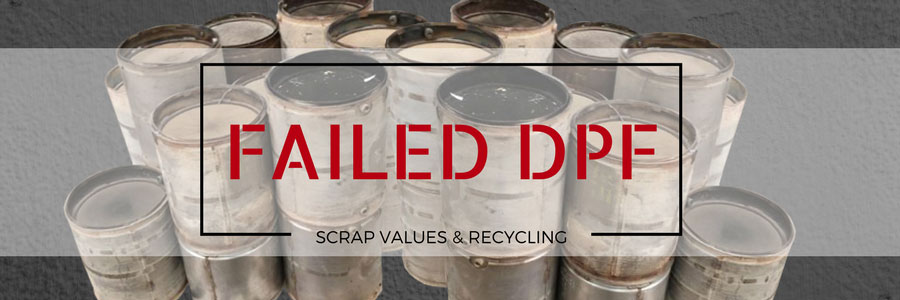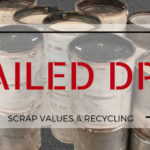Since 2007, new heavy-duty on-road diesel trucks sold in North America included diesel particulate filters (DPFs) and diesel oxidation catalysts (DOCs) to comply with the emissions mandates of the Environmental Protection Agency (EPA). In total, this now means well over 3 million DPFs and DOCs are on the road needing regular maintenance, cleaning, or replacement due to end-of-life failure or damage.
Since 2007, new heavy-duty on-road diesel trucks sold in North America include diesel particulate filters (DPFs) and diesel oxidation catalysts (DOCs) to comply with the exhaust mandates of the Environmental Protection Agency (EPA). In total, this now means well over 3 million DPFs and DOCs are on the road needing regular maintenance, cleaning, or replacement due to end-of-life failure or damage.
Whether you’re a fleet, OEM dealer, leasing company, or service center, DPF maintenance is now part of your routine service program. For most truck or bus operators this presents a dilemma beyond just maintenance — What should you do with old failed or damaged DPFs and DOCs not returned to OEMs through core exchange programs? Below, we’ve outlined a few of the most common DPF and DOC recycling questions:
What is the scrap value of DPFs and DOCs?
In most cases, failed or damaged DPFs and DOCs have value because they are coated or “catalyzed” with Platinum Group Metals (PGM). Because of this value, they should be recycled by a reputable recycling company to ensure the PGM is recovered for use in other products. Recycling is ideal because you earn money while you prevent the waste of potentially useful materials and reduce the consumption of costlier raw materials.
Depending on PGM content and commodity prices, a failed DPF or DOC is typically worth $20–$700. Exactly how much your DPFs and DOCs are worth depends on a few factors: the PGM market prices at the time of quoting (or settlement) and the manufacturer and model of the parts you return for recycling.
The alternative to recycling is earning $0.50-$3.00 each with a scrap metal company or even worse, disposing of DPFs and DOCs as garbage and paying your waste company to haul it away. For many good reasons, most smart businesses choose recycling at $20–$700 each and only work with an established company.
Are price quotes available?
Absolutely. Reputable recycling companies like Red Fox Resources maintain sophisticated part number databases and can consistently provide written quotes within one business day. As long as you can provide your part numbers, a firm price quote is readily available from Red Fox. If part numbers are not available, Red Fox will be able to provide a “ballpark” estimate based on the engine make, model and model year. Any “ballpark” estimates will be clearly adjusted to formal quotes as soon as we verify the actual part number.
Who pays for shipping?
Because Red Fox Resources deals only with commercial accounts, not individual single unit owners, we provide FREE shipping on five or more units. In most cases, customers report that logistics are simple because it’s all handled by Red Fox.
Is there any liability with DPF recycling?
As part of a fully-compliant recycling process, Red Fox Resources provides a written release of liability for each part purchased under our recycling program. This means Red Fox assumes the liability for properly recycling and disposing of these parts and materials. This process helps organizations eliminate the risk of improper disposal of goods that may contain a residual level of hazardous waste (primarily in the form of zinc from lubricating oil). Regardless of the recycler you use, make sure you work with an established company that provides a release of liability.
The pitfalls of working with your “Local Scrap Guy”
There are many reputable local scrap processing facilities throughout North America that do a great job processing scrap metal. However, when it comes to using your local scrap metal buyer for your DPFs and DOCs there are a few potential pitfalls that you might encounter.
First, most scrap metal processors do not have the capability to refine Platinum Group Metals (PGM) so they may just pay you for the metal housings which would provide much smaller earnings than the PGM recycling value paid by Red Fox.
Secondly, many times local scrap yards sell used DPF and DOC cores to core buying organizations which in turn put the parts on the open used parts market. So while you thought you were recycling your parts responsibly, they may end up being resold which could bring up significant compliance issues for your company down the road.
Lastly, in most cases these are cash transactions that provide no release of liability, purchase agreement or paper trail of any kind that would document that your parts are being disposed of properly.
How do I get paid for my recycled DPFs and DOCs?
Payment is prompt! Within 15 business days of receiving your parts, you will be paid by Red Fox. To ensure proper documentation of all transactions, Red Fox only issues payment via company check and does not make cash payments.
To learn more about DPF and DOC recycling, visit the Red Fox Resources FAQ page or contact us to get a quote at 1-844-733-3695.







